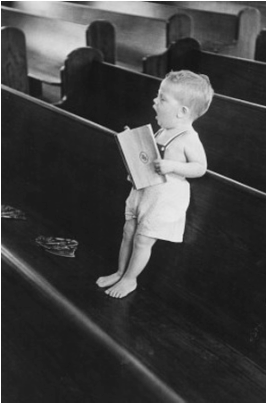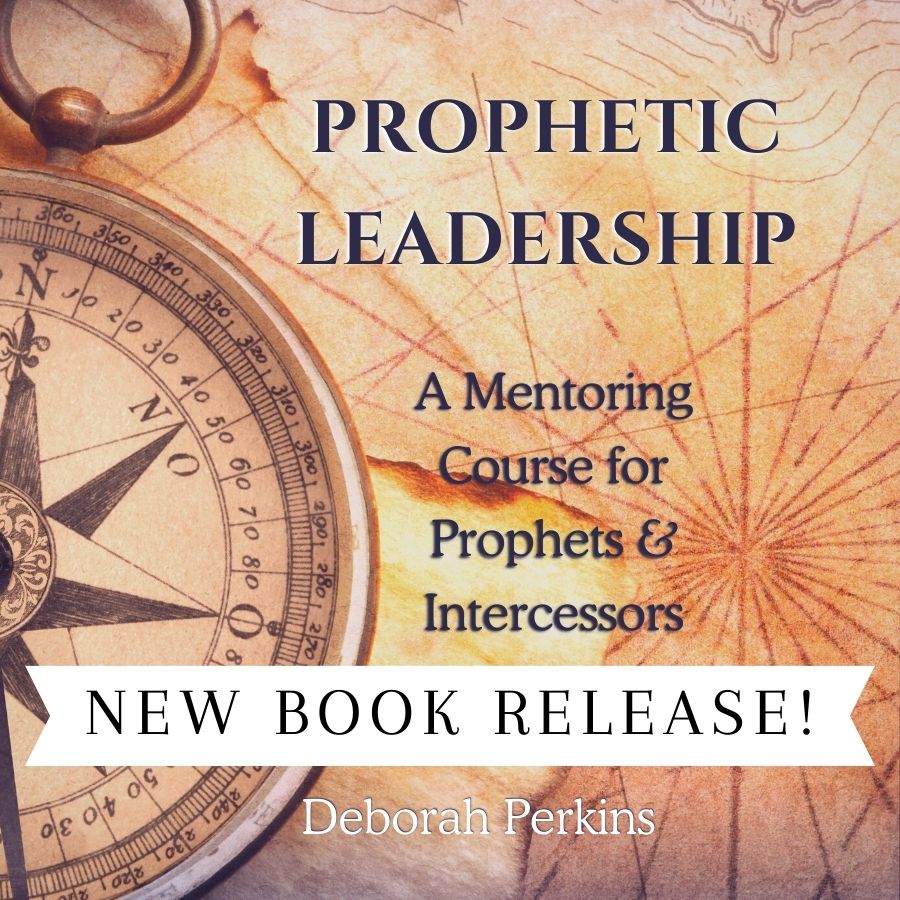…I make known to you, brethren, that the gospel
The apostle Paul is, next to Jesus, probably the most respected and influential leader in the New Testament. He has an almost superhuman status within the Christian faith, including elevation to sainthood within the Catholic church. Because we tend to emphasize his teachings, it is easy to overlook the essential, life-changing truth that God reveals to us through this man’s life: ministry is not just for clergy.
Paul's ResumeI’ve been studying Paul’s conversion again, and for the sake of encouragement, want to focus on the details behind Paul’s calling. Everyone knows he was blinded by the light of God at Damascus, but I wonder if everyone sees the transforming power of what can happen to us as a result of Paul’s experience.
A self-described “zealous” adherent to both religion and Greek philosophies, Paul was a “Hebrew of the Hebrews,” an Israelite of the tribe of Benjamin, Abraham’s seed, and a Pharisee (See Philippians 3:5). He was trained in the classics at a Hillel school under Gamaliel. He says of himself: “I advanced in Judaism beyond many of my contemporaries in my own nation, being more exceedingly zealous for the traditions of my fathers” (Galatians 1:14).
Such a man would seem to be a prime candidate for ministry. And he was, but not because of his resume. Look at what Paul writes in 1 Timothy: As (Paul) journeyed he came near Damascus, and suddenly a light shone around him from heaven. Then he fell to the ground, and heard a voice saying to him, “Saul, Saul, why are you persecuting me? And he said, “Who are you, Lord?
Paul says he was “put into ministry.” But he had no degree! Some argue that he didn’t need one, because his training in Judaism was so extensive as to be sufficient. However, he repeatedly states that he was “given” his ministry, as opposed to earning it. Besides that, he was one of the most feared persecutors of the Christian faith in his time. God chose him to be a minister of the Gospel!
Certainly, his knowledge of Old Testament scriptures later helped him “prove that Jesus was the Messiah” (Acts 17:2-3). Yet it was not his training that he relied upon. What's interesting is that despite his strict adherence to Judaism, Paul did not recognize Jesus when He first appeared to him: And I thank Christ Jesus our Lord who has enabled me, because He counted me faithful, putting me into the ministry, although I was formerly a blasphemer, a persecutor, and an insolent man; but I obtained mercy because I did it in unbelief. Paul's Ordination
It was Ananias who confirmed to Paul that Jesus Christ had appeared to him. Who was Ananias? “A certain disciple at Damascus.” (Acts 9:10).
Did you catch that? Here is the conversion and call to ministry of a major figure in the Christian faith, and it happens through someone described only as a “certain disciple!” God uses ordinary people to set amazing things in motion. The details of Paul’s future ministry were first given prophetically to Ananias: “But the Lord said to (Ananias): Go, for he is a chosen vessel of Mine to bear My name before the Gentiles, kings, and the children of Israel. For I will show him how many things he must suffer for My name’s sake.” -Acts 9:15-16. While Ananias helped Paul get started, Paul writes in Romans 1:5 that he received “grace and apostleship” from God directly. He “did not immediately confer with flesh and blood, nor with the other apostles,” but went into Arabia before returning to the disciples at Damascus (Galatians 1:11-15). I believe, as many scholars do, that Paul had some time after his "ordination" when he was alone with the Spirit of God, perhaps even in the desert as Jesus had been years prior. After being abruptly "introduced" to Jesus, he got to know the Holy Spirit. Paul's Ministry
The Bible says that “immediately” after his conversion, Paul was baptized and began preaching in the synagogues. True, he spent time with the disciples at Damascus and later with the Apostles in Jerusalem, but the Bible stresses that he began his ministry immediately once he was filled with the Holy Spirit. This challenges our normal ministry paradigm.
When someone becomes a Christian today and wants to get into ministry, we often impose rigid standards upon them. Certainly, we would never allow a new believer to begin preaching in our churches or synagogues! The pulpit, as we all know, is reserved for clergy – for the ordained and the trained. We might notice a gift someone has and encourage them to attend seminary, to practice speaking at Toastmasters, or to do some street preaching (since that does not come with the accolades of a pulpit position). This, however, is not what happened to Paul. And it wasn't a mistake, either. Those who heard him were “amazed.” Acts 9:21. His experiential preaching was so powerful that it created an “uproar” among the Jews who heard him. Does this remind you of Someone else? It is no accident that the writer of Acts used the word “amazed” to describe the reaction of the Jews to Paul’s preaching. Matthew, Mark, and Luke all say the same thing about Jesus’ initial teachings. Mark writes that “the people were amazed at His teaching, for He taught them as one having authority, and not as the scribes.” –Mark 1:22. These authoritative words that bring amazement to the crowds also lead to uproar and confusion that threaten to kill both Jesus and Paul. While Paul had the equivalent training of a teacher of the law, he was not recognized as a scholar when he preached. He famously stated that he counted all his accomplishments as loss (some translations say “dung”), for the excellence of the knowledge of Christ Jesus my Lord.” –Philippians 3:8. He was recognized for the ministry of the Spirit. Paul demonstrated the power of God everywhere he went. It wasn’t his eloquent speech that stood out; people called his speech “contemptible!” (2 Corinthians 10:10). He preached so long once that a (bored?) congregant actually fell asleep, tumbled out a window, and died! The sermon was only revitalized when Paul raised the boy from the dead. His personal presence was weak. But the Presence of God in him was strong. His relationship with God changed the entire course of human history. Your MinistryHe has enabled us to be ministers of His new covenant.
Do you believe that ministry is not just for clergy? That your relationship with God gives you the authority and right to preach to the nations? Jesus does! He called all disciples to do exactly that in Matthew 28. “But I’m not a minister,” you argue; “I’m just a lay person!” I am too. But 2 Corinthians 5:18 says that because I have been reconciled to Christ (as Paul was), I, too have been given the ministry of reconciliation. All disciples are called as Ambassadors for Christ. Where and how we minister is up to us to decide as we listen for God’s leadings.
A close look at Paul’s life quickly demolishes any insecurities we may have concerning our lack of degrees or our low stations in life. “For not he who commends himself is approved, but whom the Lord commends,” writes Paul in 2 Corinthians 10:18. When God set His seal upon you through the Holy Spirit at salvation, you were immediately “ordained.” You have all the credentials you need to be a minister, because the gospel has been committed to your trust, just as it was to Paul’s. (See 1 Timothy 1:11). There may be a specific call God gives you as you progress in Him - a specific purpose for your life, as there was for Paul's, but all are called to preach the good news of our relationship with Him. The only question is, how soon will you start your new job?
Deborah Perkins is passionate about helping people connect with God. She writes about knowing God and hearing His voice at His Inscriptions. To follow her blog, click here.
c.Deborah Perkins, 2015. All references NKJV unless noted.
|
Free Link to the Subscriber Resource Library when you join His Inscriptions!
About
Deborah Perkins Categories
All
Archives
June 2024
AuthorA severe hearing loss from childhood caused Deborah Perkins to develop what she now calls her secret weapon: tuning in to God's voice. A Wellesley College graduate and an award-winning writer, Deborah is now a wife and mother of 3 boys. Deborah has devoted over 25 years to professional and lay Christian ministry in New England and beyond. Her passion is inspiring people to cultivate greater intimacy with God. |



 RSS Feed
RSS Feed






